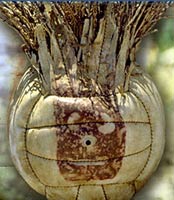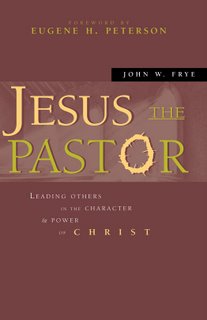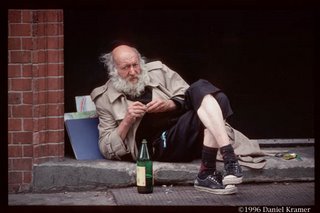JESUS' ISRAEL: MORE BLOODY THAN BLESSED
"The gospel tradition is full of conflict. Often the conflict is violent. All three synoptic Gospels begin and end with conflict, the most prominent being the crucifixion of Jesus by the Romans, followed by his vindication in the resurrection... . Far from avoiding or transcending such conflicts, however, Jesus himself enters into them and even exacerbates or escalates them" (Richard A. Horsley, Jesus and the Spiral of Violence: Popular Jewish Resistance in Roman Palestine, page 156).
Against the prevailing popular myth that Jesus as the Good Shepherd wandered around Galilee, Samaria and Judea with a Breck Girl hairdo and a laid-back, peaceful, agrarian demeaner, Robert Horsley, who has paid a lot of scholarly attention to the violent socio-politico-religious environment of the "holy land" during the time of Jesus, paints a far different picture. Horsley compellingly presents a Jesus living in, facing, and standing against the terrorist realities of his day. Jesus, in a sense, woke up every day to the sound of bombings, not to "soft favorites all the time, all day long."
When the angels sang about "peace on earth" at Jesus' birth, they didn't see a gentle Bethlehem stable with soft snow on the ground and bright stars twinkling. They saw blood running in the streets of Jerusalem. They were aware of the hate-driven plots of many, many Jews to retaliate against the inhumane oppression of Rome. Not too long after Jesus was born, the blood of infants flowed in the streets of Bethlehem as Herod viciously sought to kill the new rival "king." John the Baptist was capriciously beheaded. Jewish dissidents were crucified by the hundreds yearly. Assassinations of Roman soldiers and Jewish compromisers with Rome by Jewish sicarii during the Jewish great feasts in Jerusalem were common and expected.
Reading our own culture's "separation of church and state" into the Gospels is one of the most blatant hermeneutical (interpretive) errors of our time. Every "religious" thing Jesus did and said was highly politically-charged with resistance to the Roman oppression and the Jewish abandonment of their hope in God. The Temple in Jerusalem was equivalent to the White House or the Congressional Building in Washington, DC. Can you see Jesus whipping his way through the White House? Violating the Sabbath in Jesus' culture was equivalent to "burning the flag" in ours. Baghdad today is more like Jerusalem was than is, let's say, Grand Rapids, MI, or Wheaton, IL or Colorado Springs, CO.
Jesus as the Good Shepherd walked in the valley of the shadow of death everyday of his life. Green pastures and still waters were a national memory and a desperate hope, not a daily option.
In the midst of all this, the Essenes chose a cottage village by the lake (escapism). The zealots chose the bloody sword. The Herodians and Sadducees chose traitorous compromise "with the powers that be." The Pharisees narcoticized themselves on endless religious minutiae. Rome chose intimidating military power. Wading neck deep into it all, Jesus chose love.
The love of God in Jesus Christ is the greatest threat to terrorists and escapists and compromisers and religious bean-counters and empirial power brokers. And God's love is their only hope. And our only hope. My only hope.




















